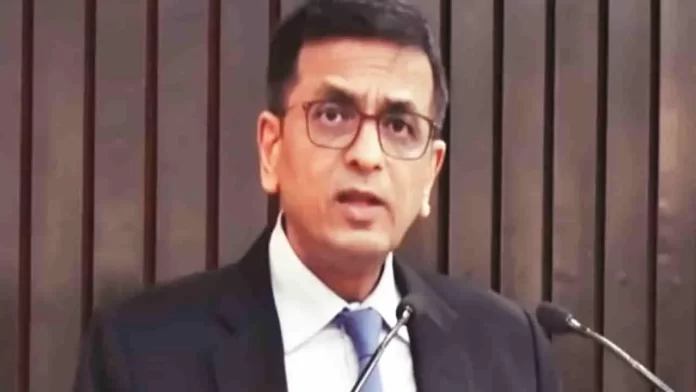Chief Justice of India DY Chandrachud has highlighted the importance of physical, technological and personnel infrastructure in the judiciary, saying that technology should supplement, not replace the physical access to courts.
Speaking during the inauguration ceremony of the new office premises of the Central Administrative Tribunal (CAT) in Mumbai, the CJI said that telling a wheel-chaired litigant, a senior citizen or a lactating mother that they were better experienced online, was not a good answer.
The technology must supplement and not sabotage the physical access to courts, he said, adding that the choice on how to access the courts must lie with the litigant alone.
He said the function of courts and tribunals was to give the litigants an effective choice between a fully functional and accessible court complex and an equally functional technology-enabled court.
He said there were several barriers to justice, including social, physical and systemic barriers, adding that a good infrastructure was an effective way to reduce these barriers and ensure that legal disputes were heard effectively and disposed of quickly.
Noting that more lawyers were now voluntarily working in tribunals, he said it was crucial for the tribunals and courts to have infrastructure that addressed the demands of the lawyers and the court staff working in such buildings.
As per the CJI, a well-maintained infrastructure would not only enhance the public’s confidence in the State’s ability to meet their legal needs, but also account for their comfort as they navigated through the complexities of the daunting legal journey.
He said the court’s personnel infrastructure, along with lawyers and judges, also comprised the Registry and the support staff, which formed the backbone of the court system at all levels.
Talking about the problems faced by female lawyers, he said the inability to get a timely outcome in a case was more likely to impact female lawyers than male lawyers, adding that a woman was not only fighting her immediate opponent in the court, who perhaps benefitted from the delay, but also combating years of gender perceptions about her innate ability to be a lawyer.


